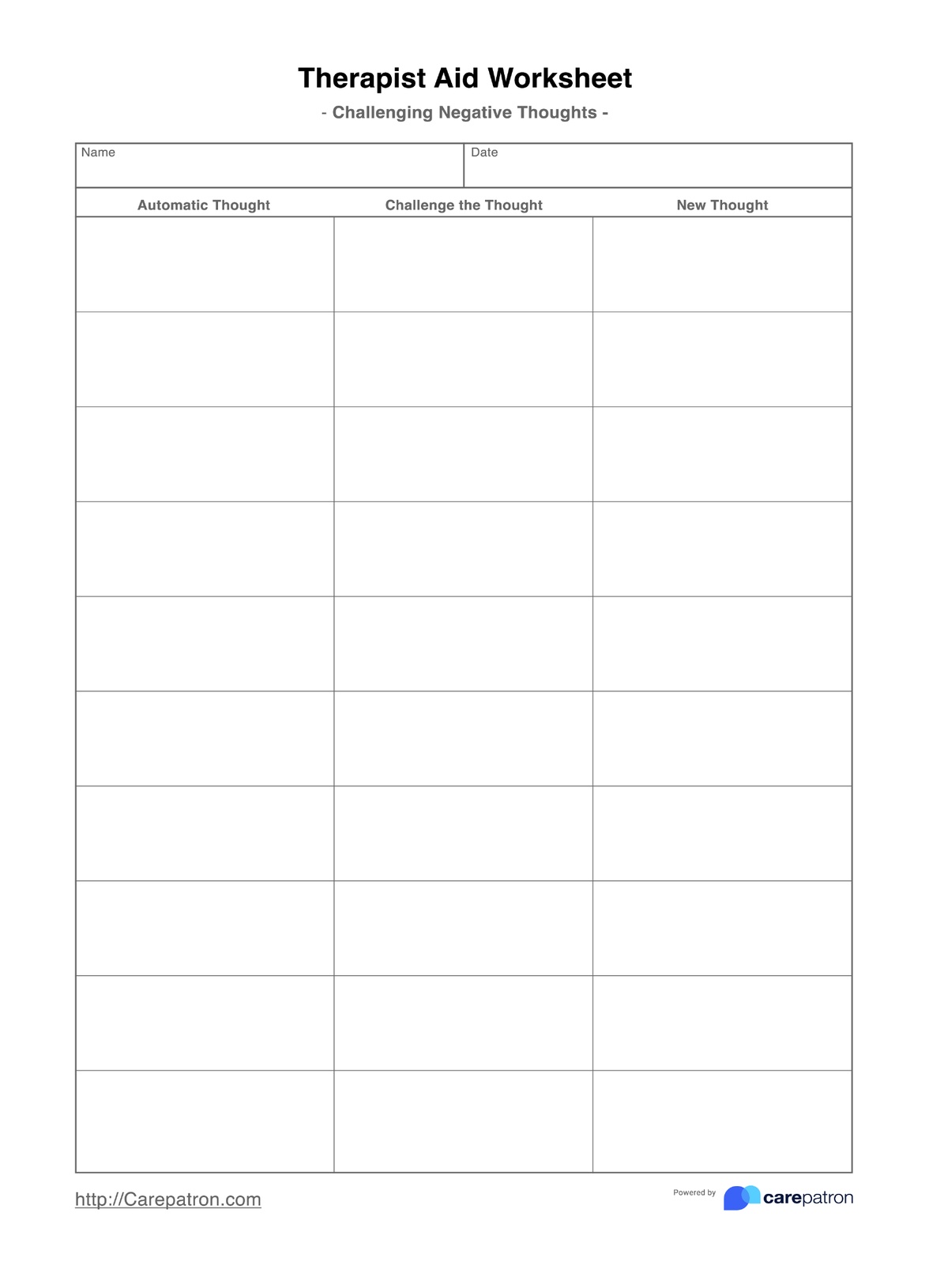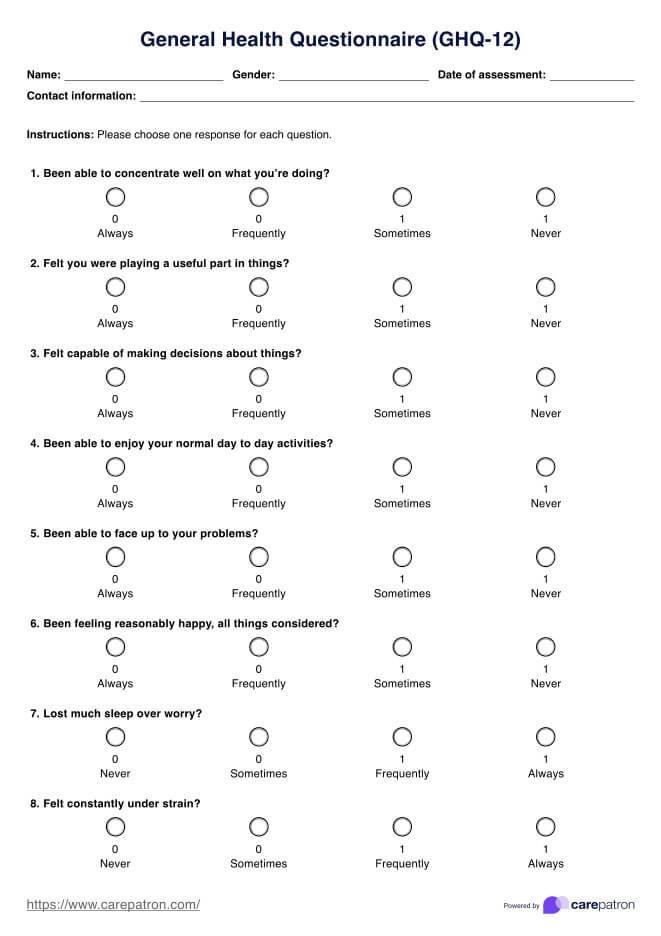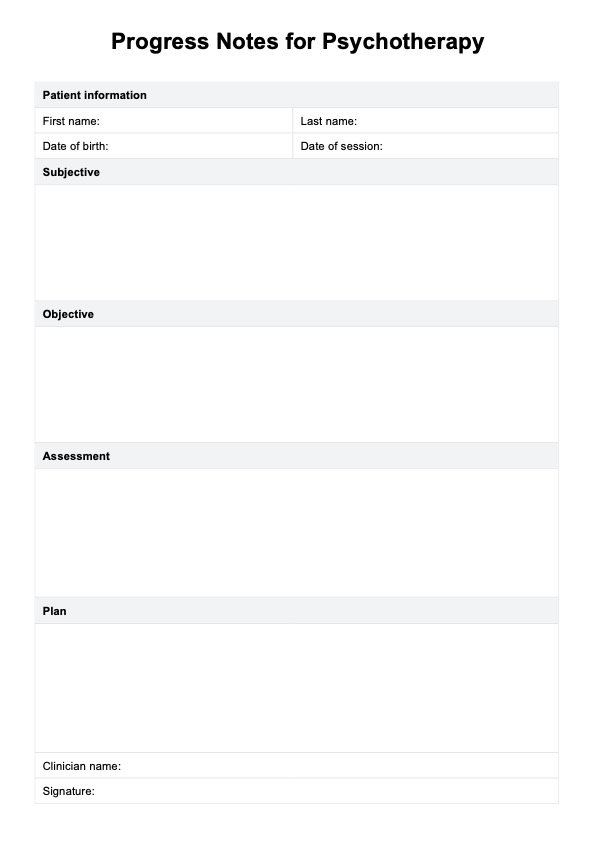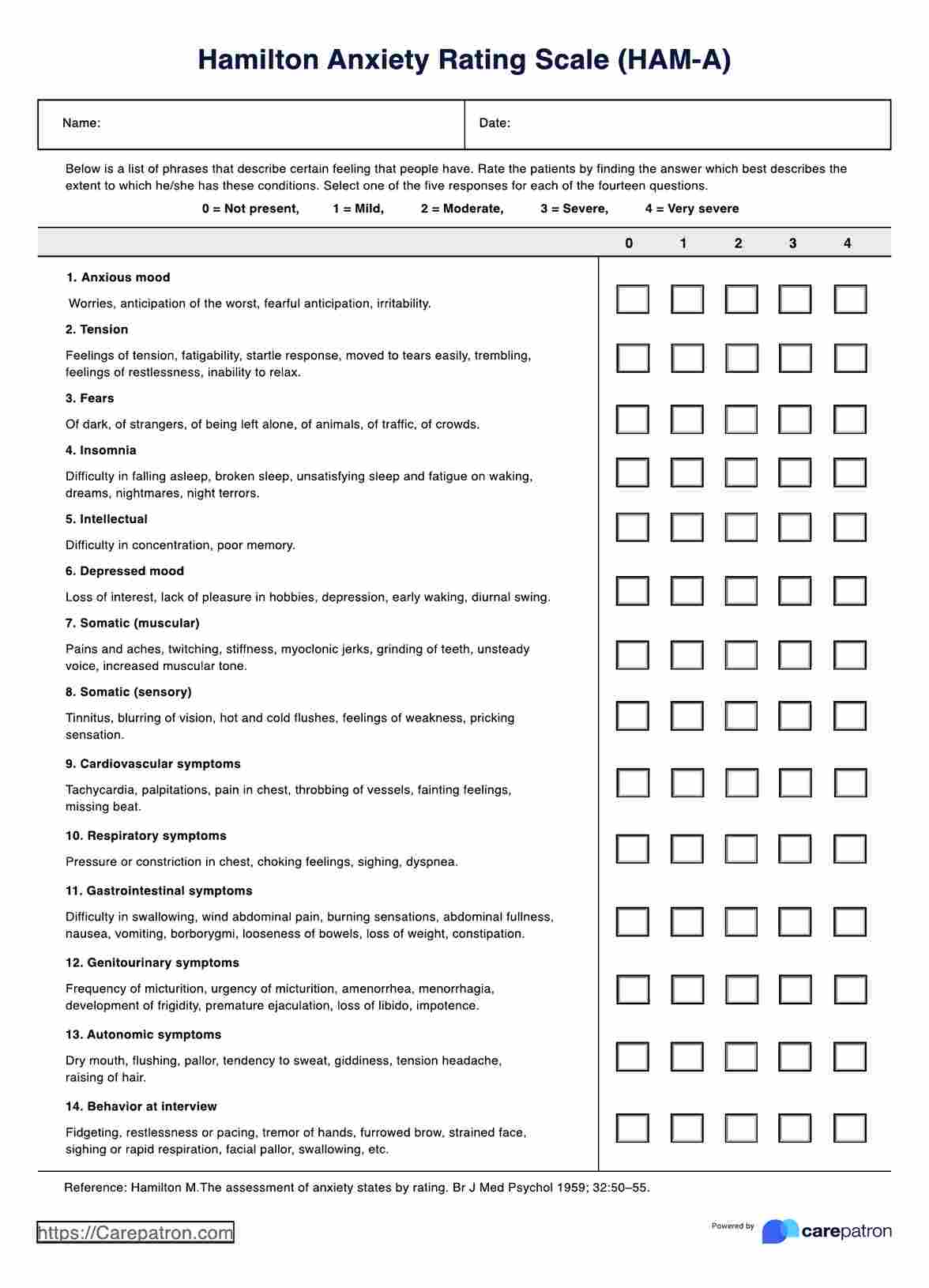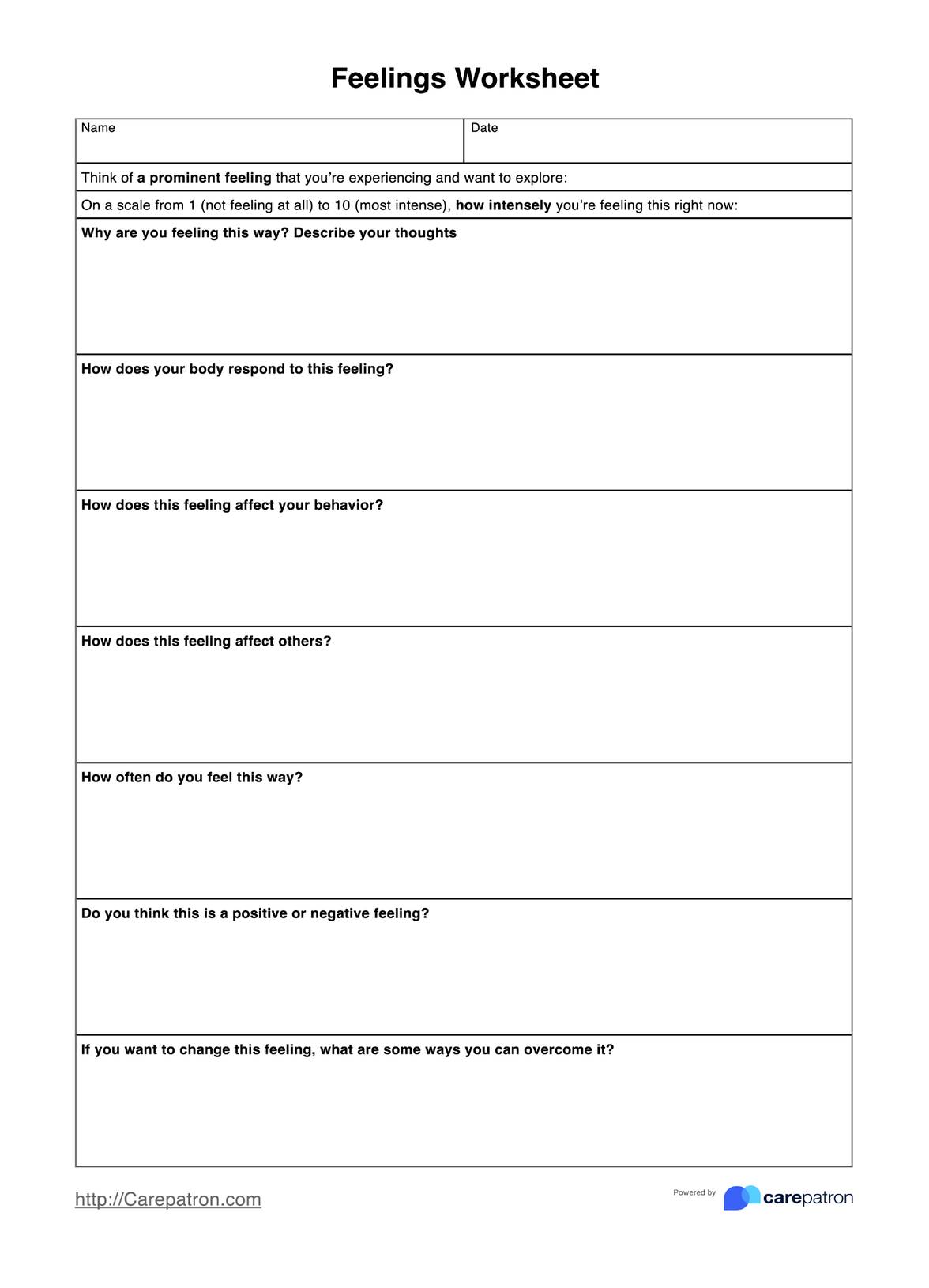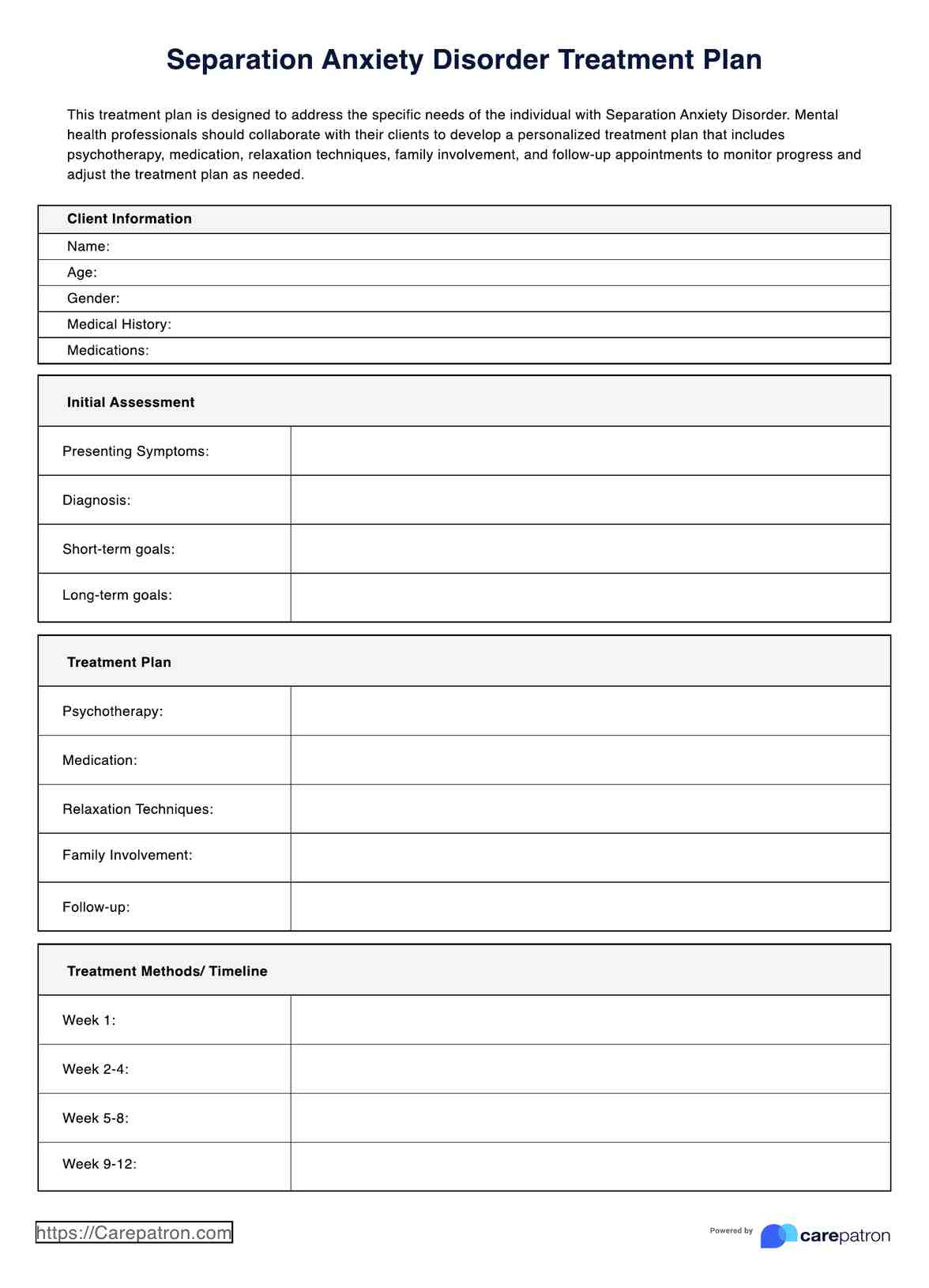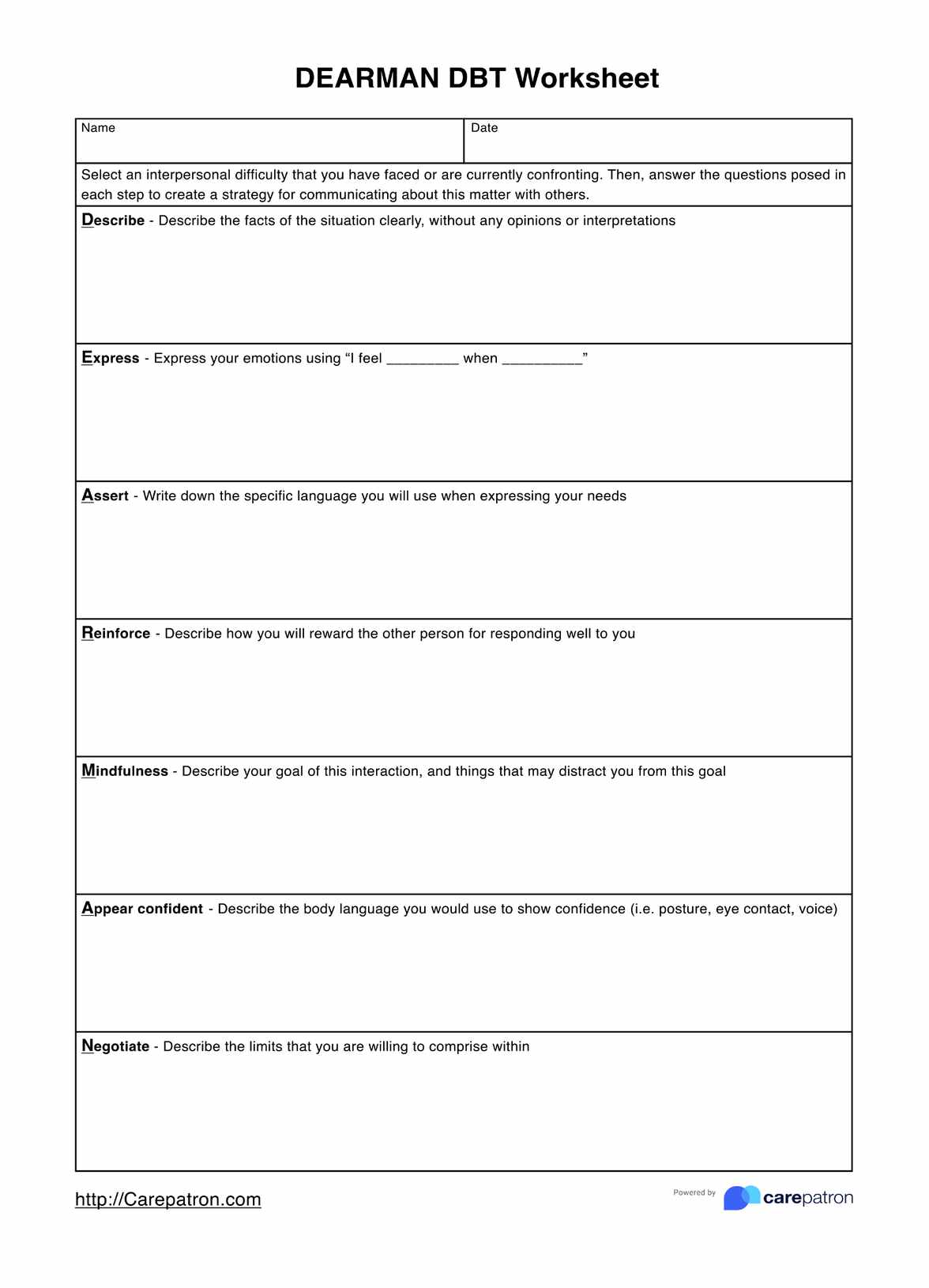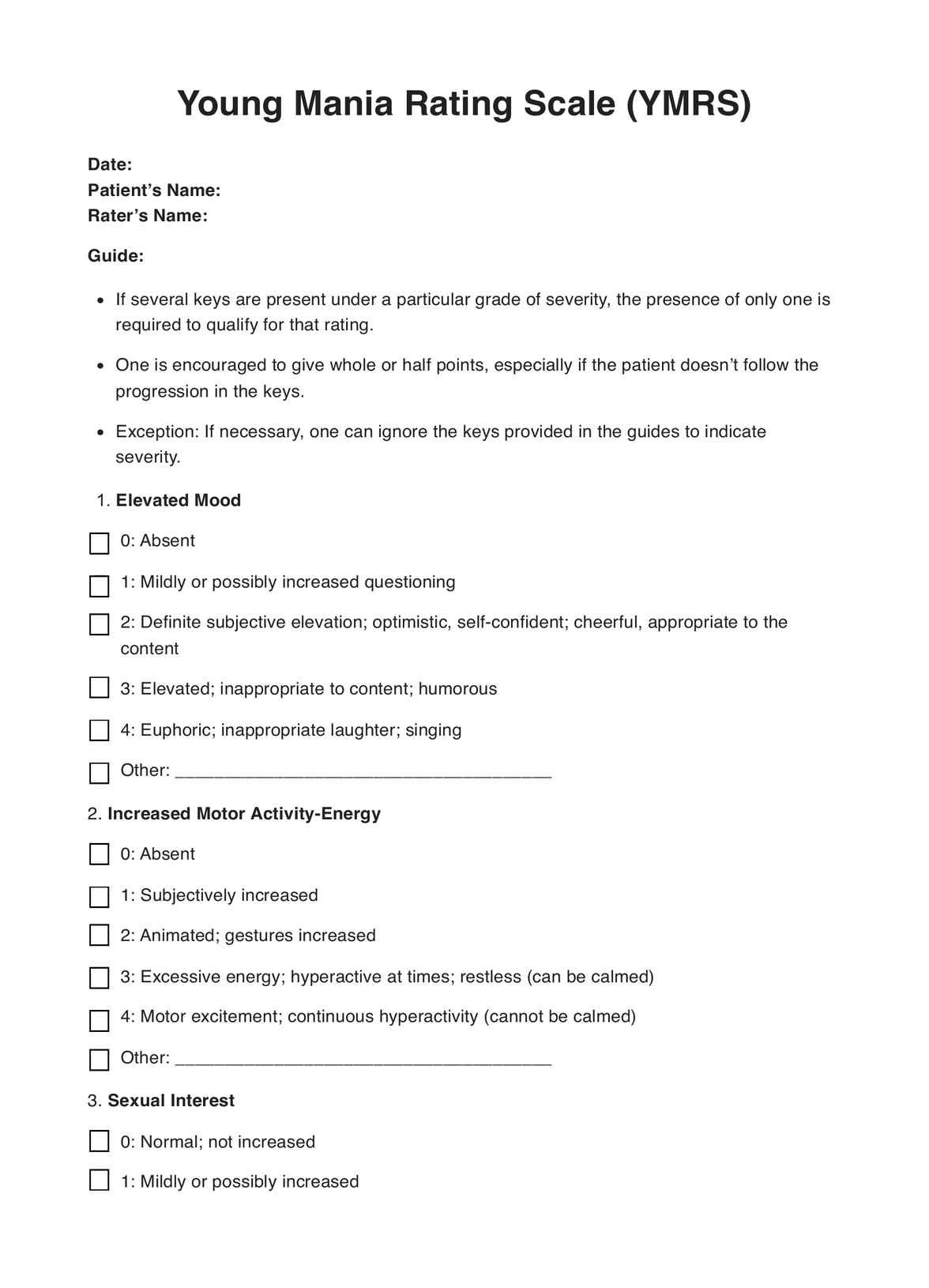Self-Control Worksheet PDF
The Self-Control Worksheet is designed to help evaluate and improve self-control. Integrate our free template into your mental health practice today.


The importance of self-control
Self-control regulates one's emotions, thoughts, and behaviors in the face of temptations and impulses, demonstrating effective impulse control. It's a crucial aspect of emotional intelligence, enabling individuals to exercise restraint, make thoughtful decisions, and adhere to societal norms and personal values. Self-control involves consciously choosing behaviors that align with long-term goals and values rather than succumbing to immediate desires or reactions.
The importance of practicing self-control lies in its profound impact on various aspects of life. It plays a vital role in achieving long-term aspirations, maintaining healthy interpersonal relationships, and navigating life's challenges effectively. Self-control is not just about resisting temptation; it's about making choices that contribute to personal development and overall well-being. Practicing self-control helps individuals respond to situations thoughtfully and make decisions that are in their best interests in the long run. Teaching students emotional regulation is especially important for them to grow up as well-adjusted adults.
The absence of self-control often leads to adverse outcomes, both in personal life and professional settings. Without the ability to regulate impulses, individuals may succumb to unhealthy habits, such as overeating, excessive spending, or anger management issues, which can have long-term negative impacts on health and financial stability. In relationships, a lack of self-control can manifest as impulsive reactions, anger outbursts, or hasty decisions, potentially causing harm and misunderstanding with others. Professionally, insufficient self-control might result in missed deadlines, unfulfilled commitments, or impulsive decisions, adversely affecting career progress and workplace relationships.
All in all, developing self-control is essential for maintaining a balanced, healthy lifestyle. With self-control, people can have more positive interactions and progress in various life areas.
Self-Control Worksheet PDF Template
Self-Control Worksheet PDF Example
How to use our printable Self-Control Worksheet PDF
Using the Self-Control Worksheet PDF effectively can greatly assist mental health professionals and their patients. Here's a guide to using the worksheet:
Step 1: Access this template
First, access the Self-Control Worksheet by clicking "Use template," which opens it in the Carepatron app. There, you can customize it, add questions, or tailor it to your needs before you or your clients fill it out, making it very easy to access. You can download, print, and share the worksheet on the platform as needed. You can also save a ready-to-fill version to your device by clicking "Download."
Step 2: Explain the template
Clearly explain the worksheet's purpose and how their patients can use it. The worksheet enhances self-awareness and self-regulation by identifying triggers and developing coping strategies.
Step 3: Complete the worksheet
Encourage clients to:
- Reflect on recent self-control challenges.
- Identify specific triggers and typical reactions.
- Set clear, achievable self-control goals.
- Outline strategies to reach these goals.
- Choose healthy coping mechanisms for facing triggers.
- Consider support systems and how to engage them.
- Regularly reflect and adjust strategies and goals based on progress.
This step involves a comprehensive approach to understanding and improving self-control, integrating reflection, goal-setting, strategy development, and support.
Step 4: Regular reflection and adjustment
Set regular intervals for patients to review their progress using the worksheet. Adjust strategies and goals as needed, ensuring ongoing development and adaptation.
This structured approach ensures the Self-Control Worksheet is a practical tool for developing greater self-control. It aids mental health professionals in guiding patients through self-regulation improvement, enhancing overall well-being.
Self-control strategies and techniques
Developing self-control and teaching emotional regulation are vital for managing emotions, behaviors, and impulses. Various strategies and techniques can help strengthen self-control, enabling individuals to respond to situations more thoughtfully and effectively. Here are some effective methods:
Mindfulness and meditation
Mindfulness and meditation foster self-awareness, presence, and self-compassion, which are all key components of self-control. Regular practice can help people recognize and manage impulsive feelings and reactions, allowing for more deliberate responses to situations.
Cognitive restructuring
This involves changing negative or unhelpful thought patterns. By identifying and challenging these thoughts, people can reshape their responses to triggers, enhancing self-control.
Delayed gratification
Practicing delayed gratification is a powerful way to build self-control. By intentionally postponing immediate rewards for more significant, long-term benefits, a person be trained to resist temptations and impulsive actions.
Setting clear goals and boundaries
Setting clear goals and boundaries is essential to self-discipline, which can guide behavior and decision-making. Clear guidelines help maintain focus and prevent impulsive actions that may derail progress. This can also be applied in dealing with other people, improving communication skills.
Stress management techniques
Stress often diminishes self-control. Incorporating stress regulation activities like deep breathing, physical exercise, or relaxation methods can help maintain composure and self-regulation.
Behavioral modification
Behavioral modification involves making changes to a person's environment or routine to reduce temptation and prevent undesirable behavior. For example, removing distractions or planning the day can minimize opportunities for impulsive decisions.
Worksheets
Worksheets can be instrumental in developing self-control as they encourage respondents to self-evaluate their self-control and think of better ways to improve it. Our worksheet template is one good example, as it includes specific questions and sections to aid in recognizing triggers, setting goals, and developing coping strategies. This worksheet serves as a practical tool for practicing and improving self-control effectively.
These strategies and techniques, when applied consistently, can significantly enhance an individual's ability to exercise self-control. By incorporating these methods into daily life, one can develop more vital self-regulation skills, leading to more positive outcomes in various aspects of life.
Benefits of self-control
Self-control is a critical component of personal and professional success. Understanding its benefits can motivate individuals to develop and maintain this vital skill. Here are some key advantages:
Enhances decision-making ability
Self-control plays a significant role in improving decision-making. By exercising self-restraint, individuals can resist impulsive reactions and make more thoughtful, considered choices. This leads to better outcomes in various aspects of life, from financial decisions to interpersonal relationships.
Boosts emotional well-being
Practicing self-control contributes to emotional stability and well-being. It allows individuals to manage their emotions effectively, reducing instances of regrettable emotional responses. This control over emotions can lead to increased happiness and reduced stress.
Improves relationships
Self-control is essential in building and maintaining healthy relationships and improving social skills. It helps individuals avoid knee-jerk reactions during conflicts and communicate more effectively. This results in stronger, more respectful, and understanding relationships and smoother conflict resolution.
Increases productivity and achievement
In both educational and professional settings, self-control is linked to higher productivity. Self-control is particularly important for kids, as it is linked to higher productivity and better academic outcomes. It enables people to focus on tasks, avoid distractions, and persevere towards their goals. Consequently, it's often associated with greater academic and career success.
Fosters healthy habits
Self-control is crucial in developing and maintaining healthy habits, such as regular exercise, a balanced diet, and adequate sleep. It helps resist temptations that can lead to unhealthy behaviors, contributing to overall physical health.
Supports long-term goal achievement
The ability to exercise self-control is instrumental in achieving long-term goals. Self-control ensures consistent effort and perseverance, whether it's saving for retirement, pursuing a degree, or developing a skill.
These benefits of self-control illustrate its importance in achieving a balanced, successful, and fulfilling life. By developing self-control, individuals can improve their decision-making, emotional well-being, relationships, productivity, and overall health, paving the way for a more accomplished and satisfying life.
Commonly asked questions
Self-control can significantly improve with practice. Regularly exercising self-restraint and implementing self-control strategies can strengthen a person's ability to manage impulses and reactions. This is arguably one of the best ways to enhance self-control.
The best way to practice self-control involves setting clear goals, identifying triggers, and employing effective strategies like mindfulness, delayed gratification, and positive reinforcement. Using tools (like self-control worksheets) or fun games (like fun games where participants complete tasks related to self-control) can also be highly beneficial.
Self-control plays a crucial role in students' academic success. It helps them manage distractions, focus on their studies, adhere to schedules, and persevere in facing challenges, leading to better academic performance and personal development.


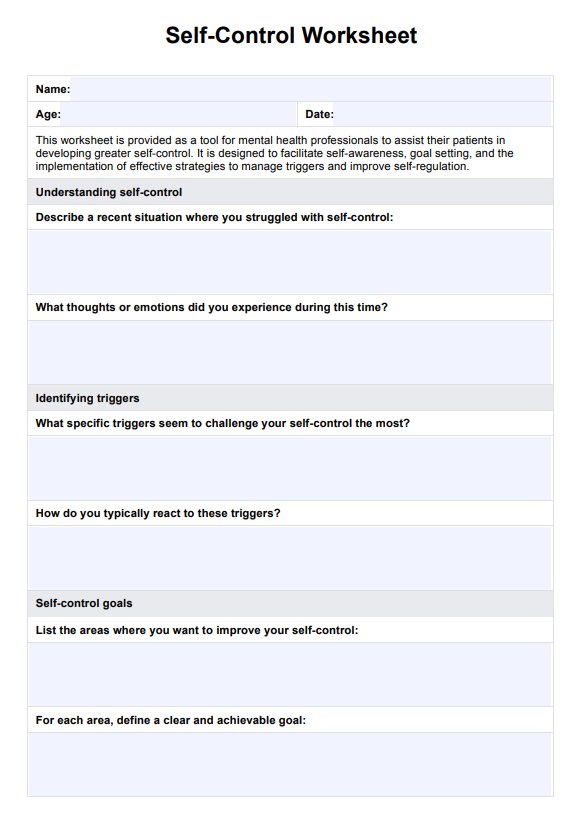
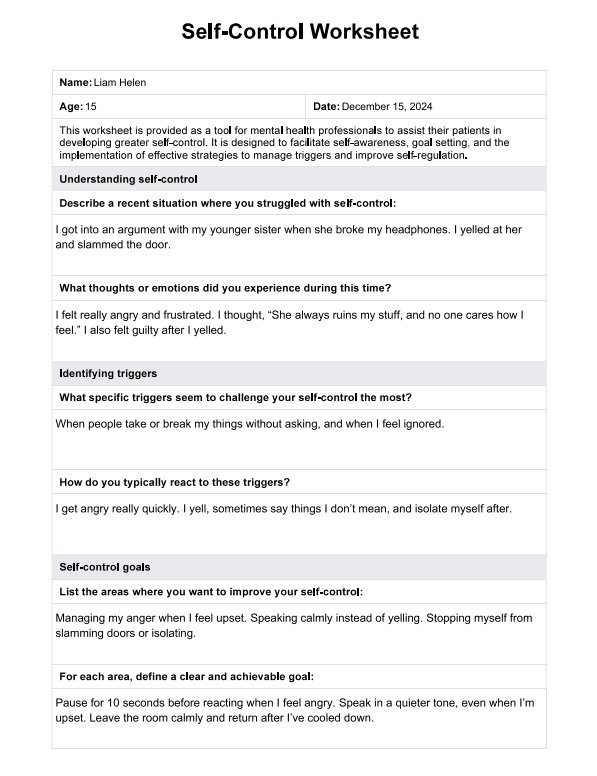
















-template.jpg)




















































































